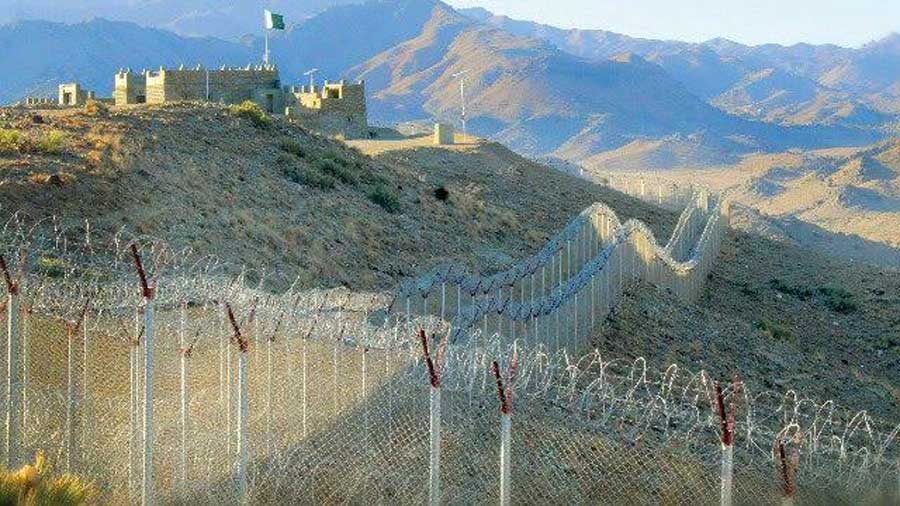The statement by US State Department spokesman Matthew Miller, acknowledging the persistent threat of terrorist bases in Afghanistan, is a crucial validation of Pakistan’s longstanding security concerns. For years, Islamabad has warned of the dangers posed by terror groups operating across the border, and this affirmation from Washington dismantles the false narrative that Pakistan’s apprehensions are exaggerated or politically motivated. Instead, it underscores the critical need for collaborative regional and international efforts to tackle the root causes of instability emanating from Afghan soil.
Pakistan’s border regions, particularly areas along the Durand Line, have seen a disturbing rise in cross-border attacks, kidnappings, and explosive incidents in recent months. Such incidents starkly contrast with the Taliban’s claims of having re-established peace and control over Afghanistan following their takeover in August 2021. The operational capacity of these terror groups highlights a glaring contradiction: while the Taliban asserts that Afghanistan is no longer a haven for terrorism, the facts on the ground tell a different story. The kidnapping of Pakistani security personnel and frequent incursions by militant groups serve as irrefutable evidence of the continued presence of extremist networks within Afghanistan.
This reality has compelled Pakistan to intensify its counter-terrorism efforts, often with significant risks and sacrifices. However, these efforts have been met with insufficient recognition from the international community, which has largely focused on Afghanistan’s internal humanitarian crisis while neglecting its external implications. The Taliban’s refusal to confront these terror groups poses a significant danger not just to Pakistan but to the entire region. Their unwillingness to acknowledge or address the problem reveals a dangerous delusion—one that prioritizes internal consolidation over regional stability.
The recent affirmation by the US aligns with an evolving partnership between Washington and Islamabad to counter cross-border threats. The two nations have a long history of counter-terrorism collaboration, and this renewed focus marks a crucial step toward addressing shared security challenges. For Pakistan, this partnership is not just a matter of military cooperation but also a reaffirmation of its role as a responsible actor in the fight against terrorism. It demonstrates a shared understanding that these threats cannot be ignored without dire consequences for regional peace.
The Taliban’s narrative of complete control over Afghanistan is increasingly being undermined by the resurgence of groups like the Islamic State Khorasan Province (ISKP) and other militant factions. These organizations, emboldened by the lack of a coherent counter-terrorism strategy within Afghanistan, have expanded their influence, posing a direct threat to neighboring countries. The surge in attacks along the Durand Line is not just an affront to Pakistan’s sovereignty but also a warning sign for the broader region. If left unchecked, these groups could destabilize Central and South Asia, disrupt trade routes, and exacerbate already tense geopolitical rivalries.
A critical aspect of addressing these challenges is dismantling the illusion that Afghanistan’s internal dynamics are isolated from its external behavior. The Taliban’s inability—or unwillingness—to curb the activities of terrorist groups within their borders raises serious questions about their legitimacy as a governing authority. If the Taliban wish to be taken seriously on the global stage, they must demonstrate a commitment to regional stability by taking decisive action against these groups. Failing to do so will only solidify their reputation as enablers of extremism rather than credible leaders.
At the same time, Pakistan must continue to advocate for a balanced approach that combines military action with diplomatic engagement. While counter-terrorism operations are essential, long-term stability requires addressing the socio-economic and political factors that fuel extremism. This includes fostering inclusive governance in Afghanistan and promoting cross-border development projects that benefit both nations. Regional stakeholders, including China, Russia, and Central Asian states, have a role to play in this process, as their security and economic interests are also tied to Afghanistan’s stability.
The evolving US-Pakistan collaboration is a promising development in this regard. By working together to identify and address cross-border threats, both nations can help create a framework for broader international cooperation. This partnership must also include mechanisms for intelligence sharing, capacity building, and joint operations, ensuring that all aspects of the terrorist threat are effectively addressed.
In conclusion, the threat posed by terrorist bases in Afghanistan is not a hypothetical concern but a pressing reality with severe implications for regional and global stability. The acknowledgment of this threat by the US underscores the need for urgent and coordinated action. For Pakistan, this is both a validation of its concerns and an opportunity to lead the charge against extremism. By fostering collaboration and addressing the root causes of instability, the region can move toward a more secure and peaceful future.

